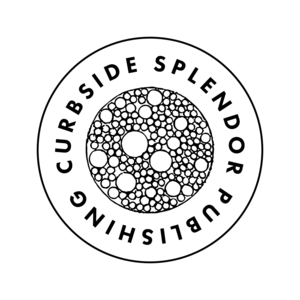Why Gainesville? Why an attempt at (as you call it in the book) the Great Floridian Novel? What is it about Gainesville, Florida that you wanted to get across?
I wanted to get across that Gainesville in the early-to-mid-1990s was a very special place to live if you were in your late teens and early twenties. I lived there for a short time, and much of what happened is very loosely based on my own experiences, but it really was the tail end of having to actually go out and find people in the world who shared your interests rather than dicking around on the internet. It was (and is) the proverbial "blue oasis in a sea of red," and if you lived elsewhere in the state and liked the music we all liked, you inevitably ended up in Gainesville. But I also wanted to address the universality of it as well. In the early chapter with the bombing standup comedian, I wanted to let everybody know that this could also be any other college town oasis around the country, in many respects.
Talk to me about music. Music is everywhere in this novel. Whatever else the characters are doing, they're playing, listening to, or thinking about music.
Music is the center of these characters' lives. It's the one—and perhaps only—thing everyone agrees on. The very last page of the novel is a track listing of a mixtape of songs firmly rooted in the mid-1990s. I feel like writing for me is a way to say goodbye to the past, and that last page is definitely an attempt to do that.
Is it true what Frank Zappa said, that "writing about music is like dancing about architecture?” (And who wouldn't want to see dancing about architecture?)
No. It isn't. I get his larger point—most music writers would rather write about haircuts instead of the rhythm section—but growing up, I found so much more in the writings of Lester Bangs and Richard Meltzer than I ever did with the typical litmag hohum.
There are a lot of southern novels that are very aware of being southern. Though Losing in Gainesville takes place in the south, it doesn't read like a "southern novel." Is there a difference between a good southern novel and a good Floridian novel?
Well, I think any good Southerner has absolutely no problem telling you that Florida isn't really "the South," even though it is, especially in the northern part of the state. A novel set in Florida needs to address the fucked up polyglot going on down there—that mishmash of humanity. In recent years, I've really grown to hate the whole "weird Florida news" meme that pops up everywhere on the internet. I don't think Florida in general has more fucked up, strange, stupid people than, say, Chicago, or anywhere else. It's a very unique place, but not really because of that. I was surprised, for instance—and it was not something I consciously planned—how much I described sunsets in the novel...
What novels have influenced you deeply, have stayed with you? Have you ever gotten a novel stuck in your head the way you might get a song stuck in your head?
I've never really gotten a novel stuck in my head the way I've had songs stuck in my head. I read a lot of Henry Miller at an impressionable age, and that always stuck with me, to name one. I liked a lot of "audio" writers before attending grad school, where I learned about "video" writers—where the voice didn't have to work so hard because it was balanced with imagery, and other sensory details. Overall, though, as this thing developed, I thought of it more and more as a "triple album," with each side trying to convey a mood of some kind. That being said, "Trout Mask Replica," "Exile on Main Street," and "Quadrophenia" had way more of an influence than any novel. Same with "Double Nickels on the Dime" and "Zen Aracade."

